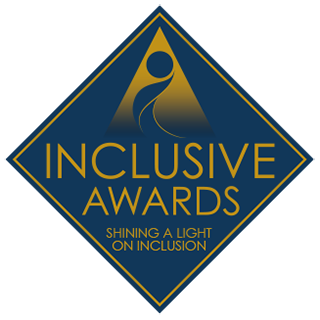I lead the Centre for Accessible Environments, a leading consultancy supporting organisations to be more accessible and inclusive. The Centre for Accessible Environments (CAE) is an award winning consultancy and leading authority on inclusive design and accessibility. Our mission is to support a more inclusive society through providing consultancy, training, research and publications on inclusive design.
My background includes working in equalities and inclusion sector for over 20 years and my passion is to drive tangible outcomes to enable everyone to be part of an inclusive society. I have experience of working at senior levels within organisations within inclusion and equality across diverse sectors from corporate, charity and public organisations. I am active in external inclusivity networks and currently hold the position of;
– Chair, Network Rail Inclusion Panel (BEAP)
– Interim Chair London Regional Stakeholder Network panel, set up to support the Cabinet Office on inclusive policy developments.
– Specialist expert for the Design Council.
– Disability Expert for Ministry of Justice
I have led on innovative programs which include the launch in 2020 of Pathways Academy – an innovative training program to support disabled people into work through training, mentoring and support into careers in inclusion sector. To date this has resulted in over 70% of graduates now working in EDI roles across arts, business and public sector. There is a skills gap in inclusion and access expertise in our sector- the access register (NRAC) showed that 96% of their members are over the age of 30 years, combine this with no formalised training programs into access it presented a risk of diminishing resource of talent to support the mission of delivering inclusive environments not only for CAE but wider for the sector. “Nothing about us without us’ advocates participation by disabled people for an inclusive society – Pathways Academy, launched in 2020 led by Fara and her team at CAE, securing funding for the programme which supports the belief that disabled people should be part of the voice shaping inclusion in the built environment.
It is innovative and unique in the sector, the model and proposal was led by Fara and CAE – the proposal impressed the funders who were led by the vision of CAE and within months they agreed to fund Pathways for 3 years supporting 40 disabled people kick start a career in inclusion. The program is flexible with eleven modules spread across 9 months, mentoring and on the job shadowing. This allowed students to continue their studies, volunteering and embed skills learned along the way.
Feedback from Pathways trainees : Student, Agne said “It is a rich course with exercises, but a key part for me was learning how to write and construct audits. Whether someone uses it for inclusive design purposes or just general architecture, audit writing is an extremely useful skill to have”. Pathways’ first-year trainee Sana, saw the programme as a chance to start a new career after being made redundant due to the Covid-19 pandemic and was finding it tough to secure a new job. She said “I couldn’t find an appropriate job – I started to think, maybe, it’s because I’m disabled,”. She says of her experience: “A year ago I didn’t know anything about inclusive design, but the training I’ve received has helped me repair my self-confidence and believe that, yes, I can do this. “Now, I’m part of a new community and I feel like this career was destined for me”. Sana is now working as an access consultant specialising in Neurodiversity.
Sam Renke, Actress and disability campaigner said of Pathways “I’ve seen first-hand how impactful the Bridge to Work programme has been through my work with Whizz Kids who are a long term project partner of the scheme. For young disabled Londoners like me, it can be an anxiety fuelled journey trying to find a job. This is why we need more programmes that support disabled people into work. I think it’s great that CAE are not only providing disabled people with employment support, but are encouraging them into careers in inclusive design, which is a subject that effects all disabled people”
In my current role and earlier roles, I have led on tackling inequality in society whether in workplaces, in accessing services or wider in neighbourhoods. At the Duke of Edinburgh’s award, I Led strategic review of practice including leadership and organisational resources to support greater inclusion in DofE. This included race, gender, ethnicity, LGBTQ+, faith, sex and low income. I also commissioned research into a study of disadvantaged people taking up DofE and supported review staff diversity and inclusion with aim to have greater representation of diversity in workforce. As a result of my input DofE set up KPI to track progress of staff diversity and retention, alongside this there was a significant uptick in more disadvantaged young people taking up DofE.

